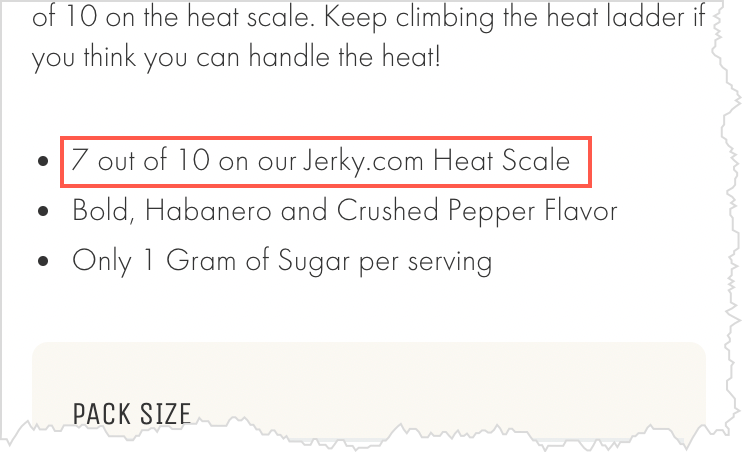Blog
Conversion Tip: Questions Before Conversions
Marketers are eager to convert shoppers. We just want to dazzle them and get the sale.
But this isn’t how the shoppers’ minds work.
The moment the brain of a new site visitor encounters something, anything, it starts firing questions. A chaotic soup of questions.
My Quick Questions Video
Why Addressing Questions Matters
If the visitor thinks of a question that isn’t answered, they’ll assume the worst and abandon the purchase. This is doubly bad because it means: 1. you will not get the sale, and 2. your competitor who successfully addresses this question will acquire a new customer. Your loss is their gain.
Psychologically speaking, making a purchase with lingering questions can cause a huge mental burden for the shoppers. Psychologists call this cognitive dissonance. Basically, your shopper is torn: on one hand, they want to buy this product, and on the other, they have this nagging unanswered question.
And even if they suppress this nagging question and place the order, this could backfire because now they have a weird negative feeling about the purchase (often shoppers don’t even remember what their question was, but they do remember the feeling it left them with). This nagging negative thought might nudge them to return the item.
Can’t the Buyer Just Contact Us?
Your site has chat, it shows a prominent phone number, it displays your customer service email ID. If the shopper simply made contact they would have the answer immediately.
Here’s the thing, most shoppers aren’t that motivated. They want to conserve energy. It’s easier (for them) to assume the reason you don’t answer this question is that your product doesn’t have the feature.
Marketer’s Job
We think the marketer’s job is taking the megaphone and screaming our marketing message to passers-by:

This is wrong. The job of a good marketer is to get into the head of their potential audience and anticipate the types of questions they may have.
Types of Questions
Shoppers have 2 types of questions. Questions that are universal and could apply to any site and questions that are specific to your site.
Universal Questions
No matter what type of product you sell, there is a class of questions that apply to any site:
- Do I trust this retailer?
- Is this good value for money?
- Should I continue looking at other sites?
Situational Questions
Then there are questions that appear based on the product category you are selling. The example below is helpful.
An Example
Let’s do a little thought experiment. Imagine you make and sell your own jerky. Your store is called Jerky.com.
Now imagine a shopper Googles “spicy premium jerky” and lands on this page:

This visitor has never heard of Jerky.com and has never bought jerky online (though they have had plenty of overpriced, crappy, store-bought jerky). In fact, they’re online because they’re looking for a better solution for their jerky cravings.
What kinds of questions could the visitor have 4 minutes into your site? They could have thousands of questions, but here are some of the more important ones:
— “This is the first time I’m buying jerky online. Normally, I just pick something from my local grocery store. I’ve had a lot of Krave (the #1 jerky brand). How is Jerky.com jerky different? How are you able to do something the #1 national brand can’t?”
— “What makes you better than the 5 other brands that are showing me their ads?”
— “Love spicy jerky. I see this hot beef jerky is 7 out of 10 on the heat scale but what does that mean? How spicy is 7 versus 8?”
These are just 3 questions, you need to generate a list of 100 such questions. And then, only then, start building your marketing strategy.
How Many Questions Do I Plan For?
At some point, the marketer needs to decide how many questions are enough. We can’t think of every possible question. Not only is that impossible, but it’ll also make the site unusable because it’ll have so much stuff that 80% of site visitors simply don’t care about. I’d argue that if you go crazy mapping out all questions you’ll end up hurting overall conversions, so please don’t do that.
My advice is to only focus on 10 important questions that aren’t being currently answered. You can always improve your content 10 questions at a time. This way you can see how the strategy is driving results before investing more time into it.
Next Steps
This questions before conversions article was an appetizer. The main course is where the magic is. Now that you’ve glimpsed something very few marketers know the next step is to pull back the curtain and see marketing secrets the world’s best marketers want to keep to themselves.
About Frictionless Commerce
We deliver an unfair advantage to technical product DTC brands (for example, Dyson) by improving advertising effectiveness by 20% in 90 days. This is achieved using a buyer psychology conversion copywriting framework. All paid traffic eventually reaches the product page and this is where we strike. Our process.
If you like doing the hard work yourself, our founder Rishi shares conversion ideas on LinkedIn every day. Connect with him here.
If you want to make your life easier and still increase conversions, jump on a call.



